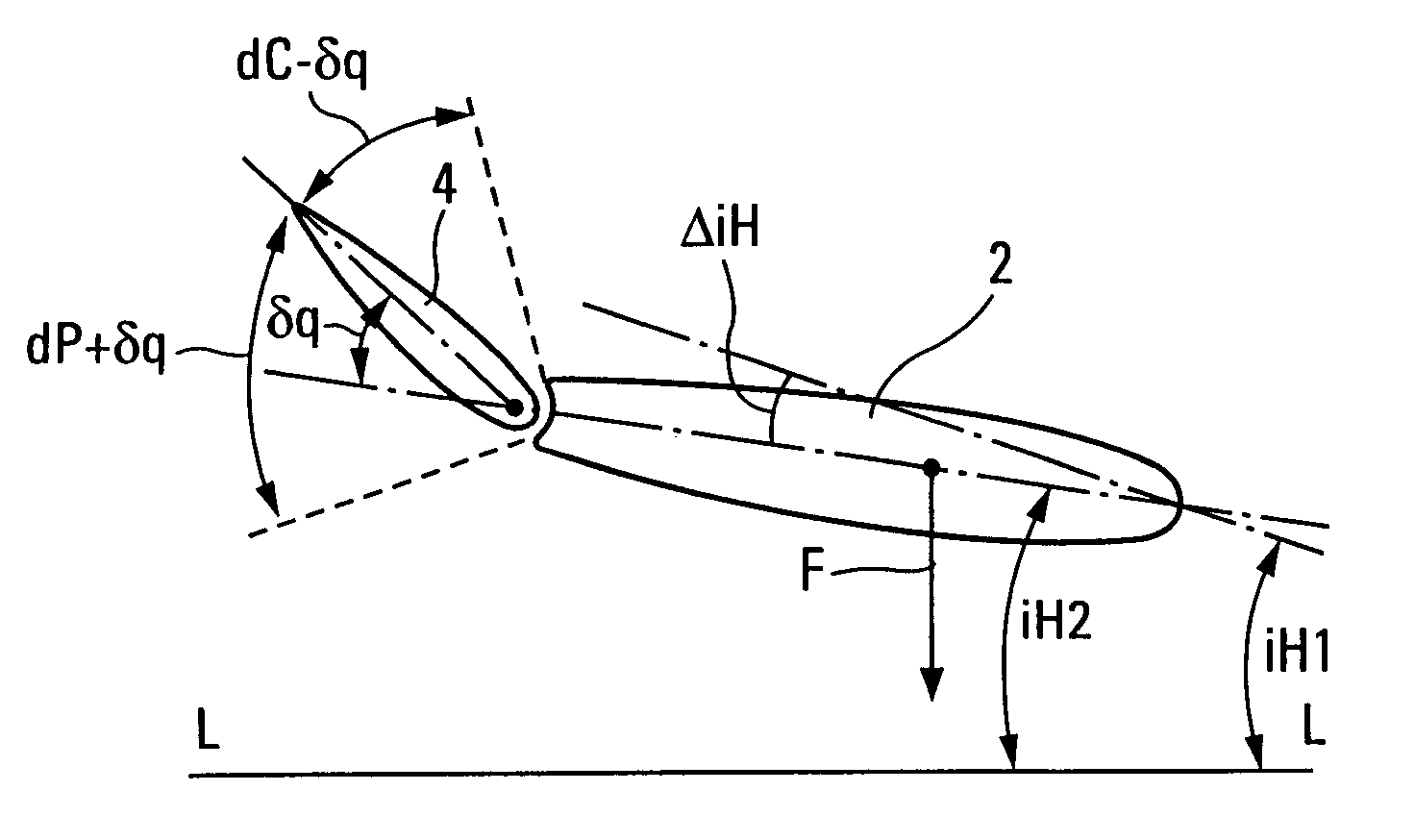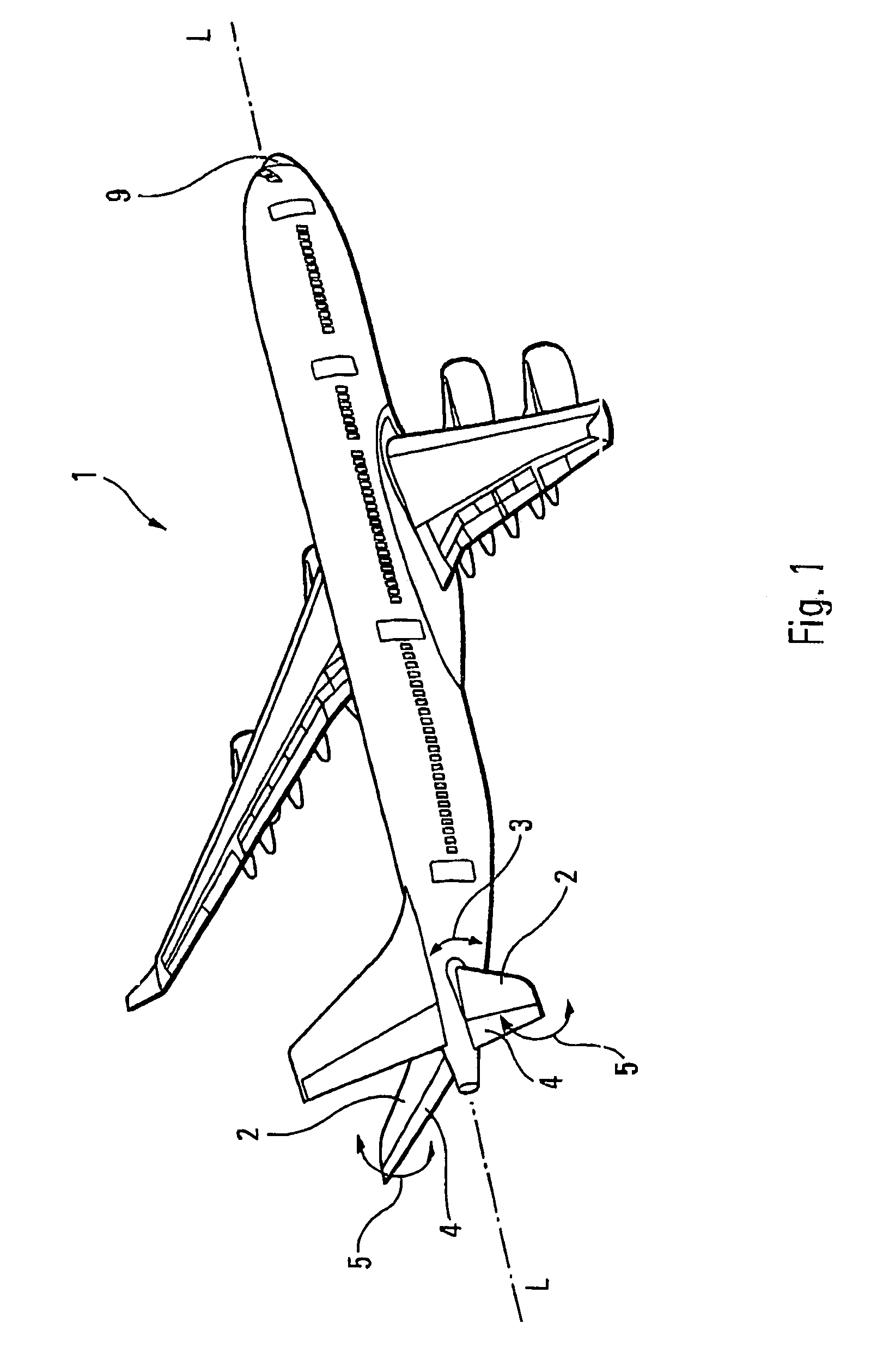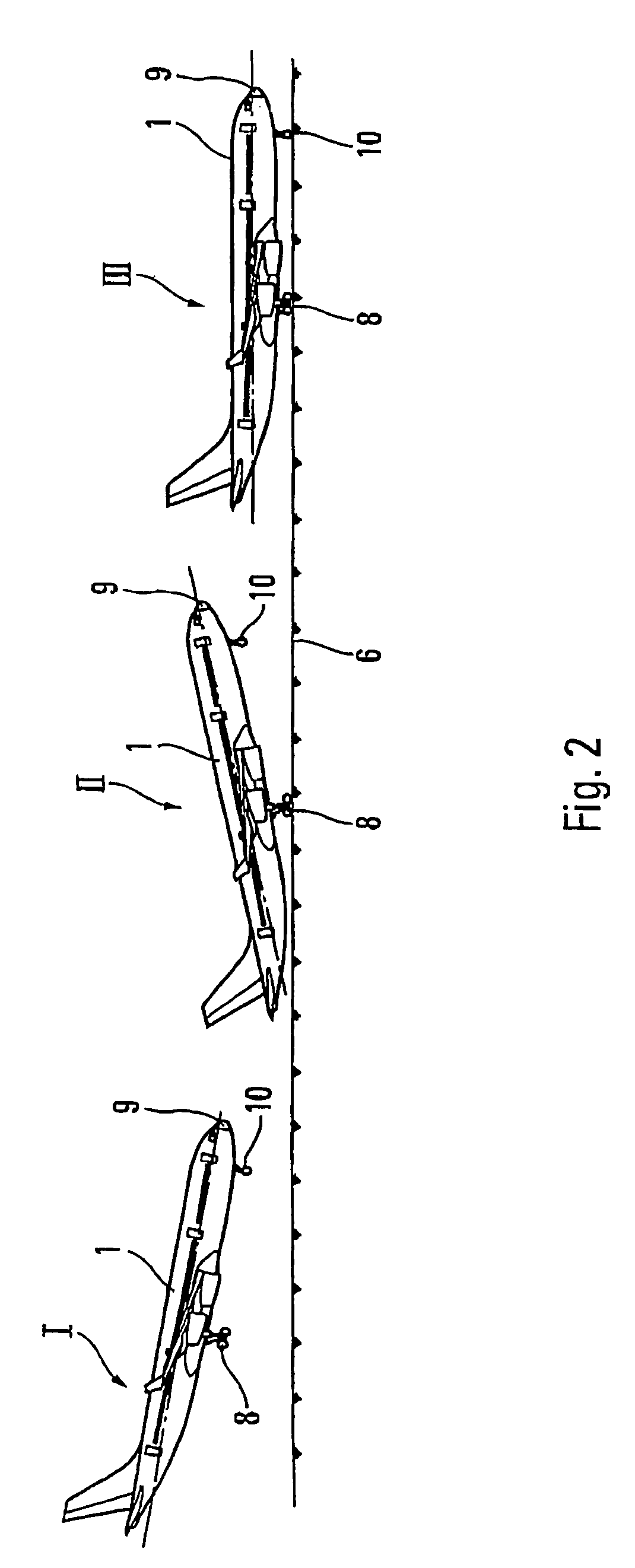Process for improving the landing of an aircraft
a technology for landing and aircraft, applied in the direction of process and machine control, instruments, actuating personally, etc., can solve problems such as delay in braking, and achieve the effect of enhancing the authority of elevators
- Summary
- Abstract
- Description
- Claims
- Application Information
AI Technical Summary
Benefits of technology
Problems solved by technology
Method used
Image
Examples
Embodiment Construction
[0019]The wide-bodied airplane 1, shown diagrammatically by FIG. 1, exhibits a longitudinal axis L—L and comprises a horizontal tail plane 2 that can be adjusted in inclination, as is illustrated by the double arrow 3. To the rear edge of said adjustable horizontal tail plane 2 are hinged elevators 4 that can turn with respect to said tail plane 2, as is illustrated by the double arrow 5.
[0020]Illustrated in FIG. 2 are three situations I, II and III experienced by said airplane 1 during its landing.
[0021]In situation I, the aircraft terminates its flare-out while approaching the ground 6. During this end of flare-out, in the customary technique, the adjustable horizontal tail plane 2 is inclined by an angle iH1 with respect to said longitudinal axis L—L and the elevators 4 are in a position which is in direct aerodynamic alignment with said adjustable horizontal tail plane 2 with a maximum nose-up swing dC and a maximum nose-down swing dP (see FIG. 3A). In this customary configurati...
PUM
 Login to View More
Login to View More Abstract
Description
Claims
Application Information
 Login to View More
Login to View More - R&D
- Intellectual Property
- Life Sciences
- Materials
- Tech Scout
- Unparalleled Data Quality
- Higher Quality Content
- 60% Fewer Hallucinations
Browse by: Latest US Patents, China's latest patents, Technical Efficacy Thesaurus, Application Domain, Technology Topic, Popular Technical Reports.
© 2025 PatSnap. All rights reserved.Legal|Privacy policy|Modern Slavery Act Transparency Statement|Sitemap|About US| Contact US: help@patsnap.com



